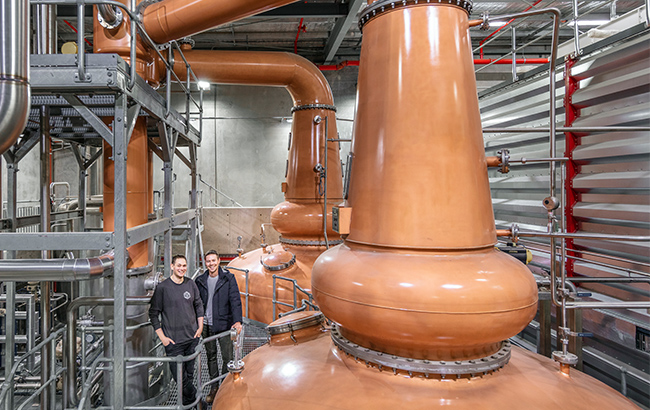Spirits Australia trade body recommended after inquiry
By Rupert HohwielerThe creation of an Australian spirits trade body comparable to the country’s model for wine has been recommended at a parliamentary inquiry.

Titled an Inquiry Into Food and Beverage Manufacturing in Australia, the inquiry came from the country’s food and drink producers in their quest to unlock the country’s ‘AU$1 billion export potential’.
Of the inquiries, 40% of submissions were said to come from the alcohol sector, with many issues stemming from Australia’s tax hikes, which have plagued the country’s spirits industry since they were set in motion in 1983.
On 20 February, led by the The House of Representatives Standing Committee and chaired by Labor MP Rob Mitchell, 23 recommendations were published, with the establishment of a trade body falling under recommendation 17.
The committee recommended the federal Australian government work with the industry to establish the new body, called Spirits Australia. This would be similar to Wine Australia, and would be industry-funded and developed in consultation with industry stakeholders.
The committee heard that the body would ‘form a foundation for future success of the Australian spirits industry’, improving regulation, supporting innovation, access to international markets, research and innovation, and realising export opportunities for the country’s spirits manufacturers.
It would also address alcohol definitions and quality and safety standards within the industry.
Within the submissions, many from the spirits side noted the work Wine Australia has done in making Australian wine a success both domestically and in export markets. In the year ending September 2024, the Australian wine industry’s export value was AU$2.39bn (US$1.52bn).
Comparatively in 2022, the value of spirits exports was AU$210 million (US$133.7m).
For Spirits Australia, functions would include: fostering and supporting the growth of profitable, resilient and sustainable Australian distillers; encouraging research and innovation within the sector; building markets, disseminating market information and knowledge (and developing a ‘Brand Australia’ approach to the export of Australian spirits); growing industry networks domestically and internationally; and encouraging adoption and ensuring compliance of quality and safety standards within the industry.
Industry reforms welcomed
Leading voices in Australian spirits were happy for the recognition, but also stressed that continued support was needed, especially in regards to Australia’s alcohol excise regime.
Australian Distillers Association chief executive Paul McLeay said: “These recommendations demonstrate the committee recognises our potential to follow in the footsteps of Australian wine, which has become a AU$2.5bn export industry by working in partnership with the federal government.
“We call on the government to adopt our Spirits Export Accelerator Strategy as the first step towards fulfilling the objectives of the Spirits Australia body.”
Spirits & Cocktails Australia chief executive Greg Holland, meanwhile, said the industry was looking forward to working with the government, but with a caveat: “We must remind the government that Spirits Australia cannot be industry-funded while we are paying the world’s third highest spirits tax. There simply isn’t the headroom for an additional levy.”
He added: “Wine Australia was fully government funded in the beginning, and it remains partly government-funded today, as the committee itself acknowledges in its report.
“Spirits Australia must be funded initially by allocating a modest amount of the US$6 billion (US$3.82bn) in excise our industry pays to the government every year.”
Due to the ‘complexity’ of alcohol taxation in Australia, the committee said it did not draw any conclusions on the issue, but it did recommend a House Select Committee to be formed ‘to inquire and report into all aspects of Australia’s alcohol industry’.
In addition, the committee recommended that the government increase assistance for small and medium enterprises looking to export Australian food and beverage products to Asia.
The duty on spirits in Australia rose again on 1 February 2025.
Holly Klintwoth, president of the Australian Distillers Association (and managing director and head distiller at Bass and Flinders Distillery) said to The Spirits Business that the drop in revised spirits revenue for the financial year 2024-25 – from AU$331 million (US$205m) from the AU$359m (US$223m) – is an “unintended consequence” of the tax hike.
Related news
Kinglake builds Australia’s first underground warehouse
Australian rum maker Brix Distillers files for administration
